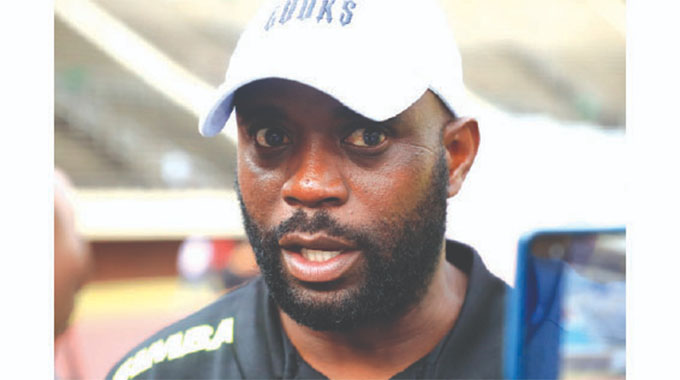A tale of two cricket countries

Robson Sharuko Senior Sports Editor
THREE years ago, Kumar Sangakkara, then the captain of Sri Lanka, received a standing ovation at Lord’s after a landmark hour-long address in which he savaged the game in his country as corrupt, controlled by cronies and devoid of transparency.
Sri Lanka cricket was in turmoil, debts had ballooned to US$70 million, national team players had not been paid for months and were owed close to US$5 million, funding of the clubs had dried down and domestic matches in the first class Tier-A and Tier-B tournaments were postponed.
Last month, Sangakkara was at the crease in Dhaka, Bangladesh, when the final winning runs were scored as Sri Lanka captured its first ICC World Twenty20 title and, effectively, make up for their collapse at home, in the final of the same tournament, against the West Indies last year.
As Sangakkara, in his final World Twenty20 match, was lifted shoulder high by his delirious teammates and Sri Lanka partied in its hour of triumph, my thoughts raced back to what his teammate, Mahela Jayawardene, had told the world three years ago as cricket in his country limped from one financial crisis to the other.
“If we were after money, we probably wouldn’t have toured and played at all the other places,” said Mahela.
“Yes, we had some problems, but it never interfered with our cricket. We never made any issues with our board.
“We worked together with them and tried to sort out the problems.
“It’s not just our payment, there are a lot of other things back home. Money never was a factor.”
Sri Lanka’s success in Bangladesh provided testimony that cricket nations can rise from the shadow of financial ruin and win world titles and even a country, whose national game can be described by one of its greatest players as corrupt, controlled by cronies and devoid of transparency, can take its place at the top of the globe.
Sri Lanka Cricket’s financial challenges, just a few years ago, which needed the intervention of the ICC, the country’s central bank and the government just to keep the game standing, showed the thin line that exists between keeping a cricket association in the black and in the red zone.
Zimbabwe Cricket has carried its fair load of financial challenges in the past few years and if Eliah Zvimba, the Zimbabwe Professional Cricketers Association chief, was given a chance to give an MCC Spirit of Cricket Lecture at Lord’s, he would describe the domestic game as corrupt, controlled by cronies and devoid of transparency.
This week Zvimba took exception to our description of Zimbabwe’s Twenty20 World Cup adventure as a ride on a gravy train after it emerged that the national cricketers struck a deal to be paid US$412 000, for playing in Bangladesh, where they suffered the embarrassment of failing to qualify for the Super 10.
Zvimba described the article as “damaging to the players’ image and representatives, portrays them as unprofessional, greedy, underachievers who have let the country down deliberately.”
He demanded that we apologise to the players and their representatives because it was misleading for us to suggest that they were riding on a gravy train at the World Cup in Bangladesh.
He claimed the Zimbabwe cricketers were the worst paid, in world cricket, and rather than criticise their earnings, he wants the media to sympathise with them.
When Zimbabwe becomes the only Full Member of the ICC that fails to qualify for the Super 10 of the ICC World Twenty20 in Bangladesh, losing to Ireland and just edging the Netherlands in a nervy performance in the qualifiers against the Associates, it’s a monumental failure that cannot be camouflaged by Zvimba’s best spin doctoring wizardry.
When the ZPCA insist that our players should be paid like Full Members of the ICC but they become so abysmal on the field that we can’t even beat the Associates, as was the case in Bangladesh, the media has a role to ask whether the mission has changed from winning games for the nation to just pocketing the rich earnings that come with appearing at such tournaments.
When the ICC, who provide the funding, criticises the World Cup pay deal that was struck between the ZPCA and a ZC whose arm was being arm-twisted by threats that they either sign or the players would not show up in Bangladesh, the media has a role to highlight that criticism even if, as happened in this case, it provides uncomfortable reading for the players and their representatives.
When the ZC are thrust into a corner by a ZPCA whose actions, in the countdown to the World Cup bordered on promoting a culture of mercenaries, and pushed to sign pay deals that are beyond their means, the media has a role to question such arrangements especially against a background where the team was woeful in Bangladesh.
Zvimba says the Zimbabwe team was ill-prepared in Bangladesh, which is true, but somehow he doesn’t want to accept his share of responsibility in that mess and acts as if the player strikes, done under the supervision of his organisation, which paralysed the domestic game, didn’t a play a part in that.
He has the temerity to tell us that losing to Ireland and forcing a last ball win over the Netherlands represented an “exceptional” performance at the World Cup for us, even against the background that we were the only big boys who failed to qualify for the Super 10, simply because he wants us to swallow his pathetic public relations wizardry.
He embraces the ICC when they propose that the domestic cricket leadership should be replaced, for a period of three years, by a curator as part of a bailout but, when the same organisation criticises the World Cup pay deal entered between the ZPCA and the ZC, Zvimba finds offence and tells us the ICC should not poke its affairs into domestic affairs.
“If we were after money, we probably wouldn’t have toured and played at all the other places,” the great Mahela told us three years ago when Sri Lanka cricket was stuck in financial strife and players were going for months without being paid.
Three years later, thanks to their focus, they are now World Twenty20 champions.
Zvimba, sadly, wants to have his cake and then eat it too.
After all, the ICC have just told ZC that it has to live within its means, that its costs should just be similar to an English county or a South African province and the players “need to better understand the harsh realities of the state of the Zimbabwe economy and the current financial position of ZC”.
Tomorrow Robson Sharuko will provide a detailed and personal reaction to ZPCA secretary-general Eliah Zvimba’s widely-circulated letter to media organisations on the ICC bailout and World Cup fat bonuses which were exclusively revealed in The Herald.










Comments